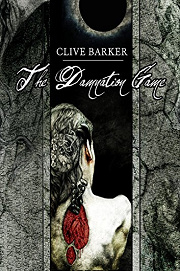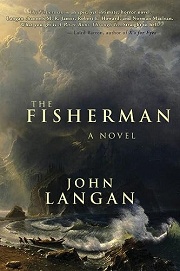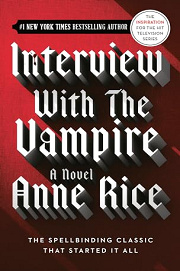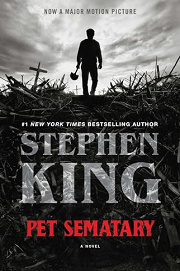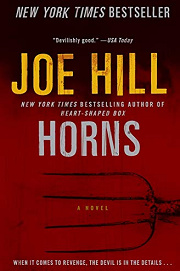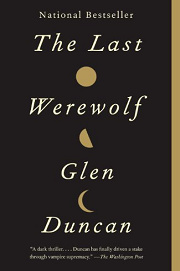Share your thoughts in a quick Shelf Talk!
The Damnation Game by Clive Barker
A master gambler accepts a wealthy recluse’s perilous offer and finds himself enmeshed in a pact older and darker than sin. Lush, seductive, and chilling, The Damnation Game showcases Clive Barker’s signature blend of temptation, terror, and twisted grace.
Have you read this book? Share what you liked (or didn’t), and we’ll use your answers to recommend your next favorite read!
Love The Damnation Game but not sure what to read next?
These picks are popular with readers who enjoyed this book. Complete a quick Shelf Talk to get recommendations made just for you! Warning: possible spoilers for The Damnation Game below.
In The Damnation Game, did you enjoy ...
... occult rites that promise impossible restorations at a terrible price?
The Fisherman by John Langan
If the pact between Joseph Whitehead and the urbane, terrifying Mamoulian hooked you—the way forbidden dealings ripple forward until a corpse-servant like Breer is stalking the living—then you’ll sink into The Fisherman. It follows two grieving men drawn toward a legendary river and the dark ritual lore surrounding it. Like Whitehead’s bargain in wartime ruins and the later horrors Marty Strauss must face in that mansion, Langan’s tale steadily peels back folklore to reveal an older, crueler magic that seduces with hope and exacts ruin.
... a tormented, morally conflicted protagonist trapped in a predator’s bargain?
Interview with the Vampire by Anne Rice
You were likely compelled by Marty Strauss’s compromises—protecting Whitehead, lying to himself, falling for Carys—while the cultured monster Mamoulian makes sin sound reasonable. In Interview with the Vampire, Louis wrestles with the same kind of temptation and self-justification after Lestat drags him into eternal predation. If you appreciated the way Barker lets sympathy and revulsion blur around Marty and Whitehead, Rice’s confessional spotlight on guilt, appetite, and responsibility will feel hauntingly familiar.
... grief-driven choices that pry open the door to the unnatural?
Pet Sematary by Stephen King
Whitehead’s desperate, hubristic deal with Mamoulian—first struck amid rubble and fear—echoes through every awful consequence Marty has to confront. Pet Sematary channels that same psychology: a parent makes a choice born of grief and pays in escalating dread. If the personal, crushing logic behind Whitehead’s damnation—and Marty’s internal battles as bodyguard and lover—moved you, King’s intimate spiral of denial, ritual, and regret will hit with the same unsettling force.
... a sin-soaked, modern fable where the devil walks among the guilty?
Horns by Joe Hill
If Mamoulian’s suave menace and the bleak, violent atmosphere around Whitehead’s estate grabbed you—the murders, the corruption, the sense that damnation can be polite—Horns sharpens that vibe into a contemporary parable. Ig Perrish wakes up with horns and the ability to draw out people’s vilest truths, turning a small town into a confessional. As in The Damnation Game, the devilish presence exposes rot beneath civility, pushing the story toward brutal reckonings.
... lush, decadent prose that finds awful beauty in violence and desire?
The Last Werewolf by Glen Duncan
Barker’s baroque sentences—his luxuriant descriptions of Mamoulian’s refinements, Breer’s grotesqueries, and Marty and Carys’s fevered entanglement—are part of the intoxication. The Last Werewolf revels in equally sumptuous language. Jake, the final lycanthrope, narrates a life steeped in appetite and existential dread with prose that’s as sensuous as it is savage. If you loved how The Damnation Game makes horror feel exquisite as well as terrifying, Duncan’s style will be catnip.
Unlock your personalized book recommendations! Just take a quick Shelf Talk for The Damnation Game by Clive Barker. It’s only a few questions and takes less than a minute.
